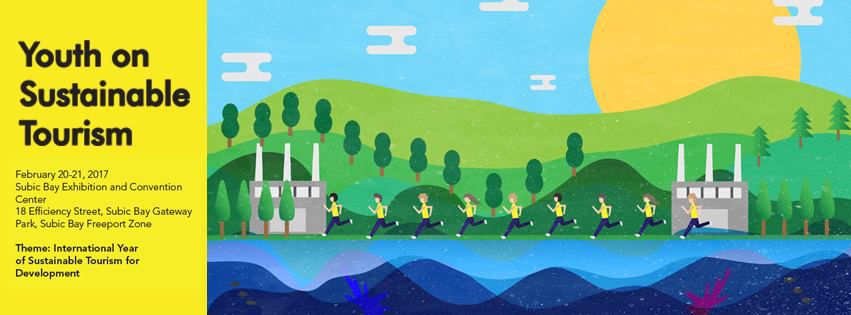The wonders of traveling are figuratively a click away for today’s youth. It is more apparent that the millennials, with their spending capability and insatiable thirst for exploring and sharing their experiences, are in the position to redefine the face of tourism as we knew it.
Social media abounds with proof. Whether it is about scaling a mountain or diving under the sea, today’s travelers are more than willing to tell others about their memories. Many profiles show a glimpse of travel stories captured in breathtaking photos and cool travel videos.
But traveling is not just about adventure and pampering. Nowadays, the adventure of a lifetime comes with soul searching and giving back components. Putting meaning to their globetrotting, young explorers go for authentic experiences, which explain the surge of homestay, “voluntourism” or volunteering for tourism efforts, and interaction with locals.
Those at the helm of the tourism sector can feel the impact of the new travel practices. The preferences of the new breed of travelers are shaping the industry, and sustainable and responsible travels are gaining more traction.
These developments will be among the trends highlighted at the Global Youth Forum (GYF) 2017, a conference organized by the International School of Sustainable Tourism (ISST) headed by former Department of Tourism Secretary Mina T. Gabor.
To be held on February 20-21, 2017 at the Subic Bay Exhibition and Convention Center (SBECC), Subic Bay Freeport Zone, the forum will carry the theme “Youth on Sustainable Tourism.”
This pushes forward the United Nation World Tourism Organization’s (UNTWO) announcement that 2017 is the “International Year of Sustainable Tourism for Development.” The event also celebrates the chairmanship of the Republic of the Philippines of the upcoming “ASEAN 2017: 50th Anniversary.”
Defining sustainable tourism
Sustainable travel is a buzzword and a lifestyle statement that encourages the adoption of a proactive and green stance on traveling.
UNTWO defined it as the “development [that] meets the needs of present tourists and host regions while protecting and enhancing the opportunity for the future.”
Responsible tourism is closely linked to sustainable tourism as it is any form of tourism that impacts positively on the visited communities.
GYF 2017 program
The GYF 2017 sessions aim to create awareness and appreciation for sustainable tourism, expose the youth to leaders pioneering sustainable tourism from all over the world, and inspire the youth to practice responsible travel.
The topics include “Heritage Tourism: Building a Strong Foundation Through Cultural Preservation”; “Striking a Balance: Ecotourism for Environmental Conservation and Rural Development”; “Match Made in Heaven: Community Development and Tourism”; “Doing Our Part: Responsible Travelling for the Millennial Traveller”; and “A Green Future: Career Opportunities in Sustainable Tourism.”
The Invited speakers who will share their insights include Ivan Henares, head of the National Commission for Culture and the Arts (NCCA) Committee on Monuments and Sites; Marika Constantino, executive director of Escolta 98B COLLABoratory; Atty. Lucille Isberto, head of International Council on Monuments and Sites (ICOMOS) Philippines; Jamie Ann Dichaves, sustainability officer, Lio Tourism Estate, Palawan; Jose Angelito Palma, chief executive officer (CEO) and president of World Wildlife Fund-Philippines; Joselito Costas, provincial tourism officer of Cebu; Ann Dumaliang, National Geographic explorer and project officer of Masungi Georeserve; Juliette Kwee, founder and CEO of Smokey Tours; Jun Tibi and Sara Erasmo, co-founder of Kawil Tours and Reef Nomads Skin Diving Tours, respectively; April Cuenca, founder and CEO of Tripkada; Sarah Aquino, founding member, Juan Portrait; Marie Grace Pascua, director of the NCCA Socioeconomic Services and Special Concerns; JC Wong, youth tourism ambassador of Pacific Asia Travel Association; Ludwig Federigan, executive director of the Youth Environmental Forum; Raf Dionisio, co-founder, Make a Difference (MAD) Travel; and Bob Zozobrado, executive director, Lyceum of the Philippines University.
Strong influence on tourism
According to Gabor, since the youth has more interest and ability to travel than previous generations, they need to have a wider and deeper view of how their travel practices and experiences shape the future of tourism.
“It is, therefore, important to create awareness and provide inspiration to the youth that sustainable tourism is the future, and that they can make it happen,” she said.
The event is supported by the Subic Bay Metropolitan Authority and the Department of Tourism (DoT) and endorsed by the Department of Education, the Commission on Higher Education (CHED), and the National Youth Commission (NYC).





